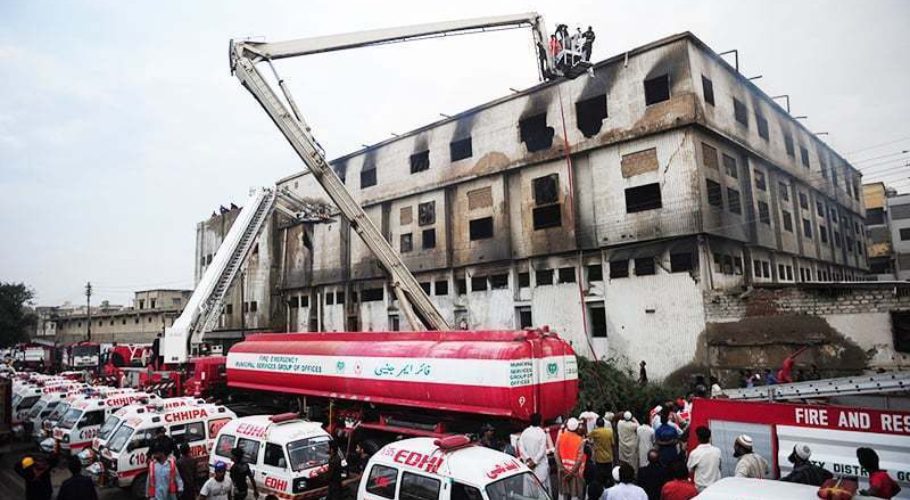KARACHI: The Sindh High Court (SHC) on Monday rejected appeals of two suspects against their death sentences in Baldia factory fire case, on the eleventh anniversary of the fateful incident.
A division bench of the high court announced its reserved verdict on the appeals of the convicts – Abdul Rehman alias Bhola and Muhammad Zubair alias Charya – against the death sentences handed to them.
The court rejected appeals against the life imprisonment sentences of the factory’s four watchmen – Shahrukh, Fazal Ahmed, Arshad Mehmood, and Ali Mohammad.
The court exonerated MQM leader Rauf Siddiqui, the then-provincial minister for commerce and industries, and three others named Abdul Sattar, Iqbal Adeeb Khanum, and Umar Hassan for lack of evidence.
The court rejected government appeals against the acquittal of the four accused. The bench had reserved its verdict on appeals on August 29 after the completion of arguments by the sides.
An Anti-Terrorism Court (ATC) handed down the verdict on September 22, 2020, sentencing two MQM workers to death for their role in the factory case.
More than 260 people were burnt alive after a fire in Ali Enterprise factory in Baldia Town in 2012. Initially thought to be an industrial accident, investigations revealed that the factory was set on fire after the owners failed to pay extortion money.
Over 400 witnesses gave their testimony in the case which established that Hammad Siddiqui, an MQM official, had ordered that the building be set on fire. However, other MQM office holders, including Rauf Siddiqui, who was a provincial minister at the time of the incident, were acquitted.
In October 2020, Bhola, a former sector in-charge of the MQM, and Charya filed separate appeals in the SHC challenging the death sentence handed down to them by the ATC.
READ MORE: Two awarded death sentence in Baldia factory fire case
The counsel for the appellants had argued in the appeals that the trial court’s judgement was passed without observing the principles laid down by the Supreme Court. They further stated that the trial court did not appreciate the material contradictions of the evidence produced by the prosecution.
They added that the factory workers had died due to the negligence of the factory owners and the departments concerned since there were no emergency exits in the industrial unit. They maintained that no evidence was produced before the trial court to support the allegation of extortion.



































